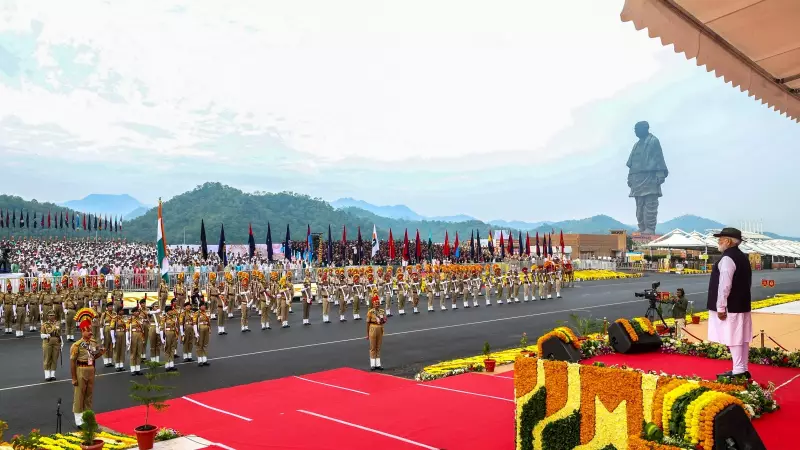
In a stunning historical revelation that has sent ripples through political circles, Prime Minister Narendra Modi disclosed that Sardar Vallabhbhai Patel, India's first Deputy Prime Minister, had envisioned the complete integration of all Kashmir territories with India—a plan that was reportedly thwarted by then Prime Minister Jawaharlal Nehru.
The Prime Minister made these explosive revelations during his address in Parliament, shedding new light on one of independent India's most debated historical chapters. According to PM Modi, Sardar Patel, widely recognized as the architect of modern India's territorial integration, had a comprehensive strategy for Kashmir's full merger with the Indian union.
The Historical Divide That Shaped Kashmir's Destiny
PM Modi's statements highlight a fundamental disagreement between two of India's founding fathers at a critical juncture in the nation's history. While Sardar Patel successfully integrated over 560 princely states into the Indian dominion through his diplomatic prowess and strategic vision, Kashmir became the notable exception where his approach faced resistance from within the highest echelons of leadership.
The Iron Man's Unfulfilled Vision
Sardar Patel, often called the "Iron Man of India," had demonstrated remarkable success in persuading princely states to join the Indian union. His methods combined diplomatic persuasion with firm resolve, creating the geographical integrity that defines modern India. However, PM Modi's revelation suggests that Patel's vision for Kashmir was more ambitious and comprehensive than what ultimately transpired.
Nehru's Alternative Approach
Jawaharlal Nehru, India's first Prime Minister, apparently favored a different approach to the Kashmir situation. The historical context suggests that Nehru's personal connections with Kashmir and his international diplomatic considerations led him to pursue an alternative strategy that ultimately prevented the complete integration Patel had envisioned.
The consequences of this historical disagreement continue to echo in contemporary Indian politics and India-Pakistan relations.
Modern Political Implications
PM Modi's parliamentary revelation carries significant contemporary political weight, coming amid ongoing discussions about Kashmir's constitutional status and India's approach to Pakistan-administered Kashmir. The disclosure reinforces the current government's narrative about historical decisions that shaped the region's current reality.
The Prime Minister's comments have ignited fresh debate among historians and political analysts about alternative historical scenarios and how different approaches might have altered the subcontinent's geopolitical landscape.
This historical insight provides crucial context for understanding current government policies and their philosophical underpinnings, particularly regarding the government's approach to national integration and territorial integrity.






